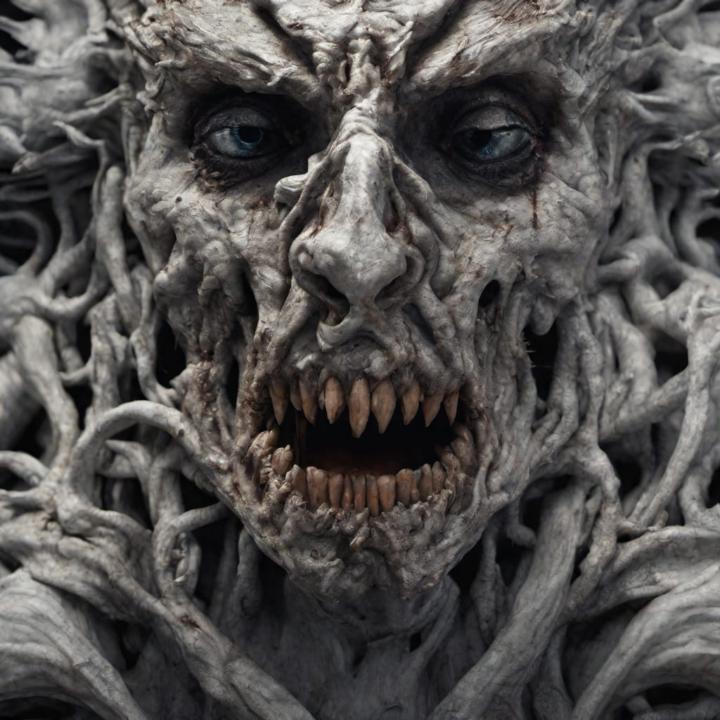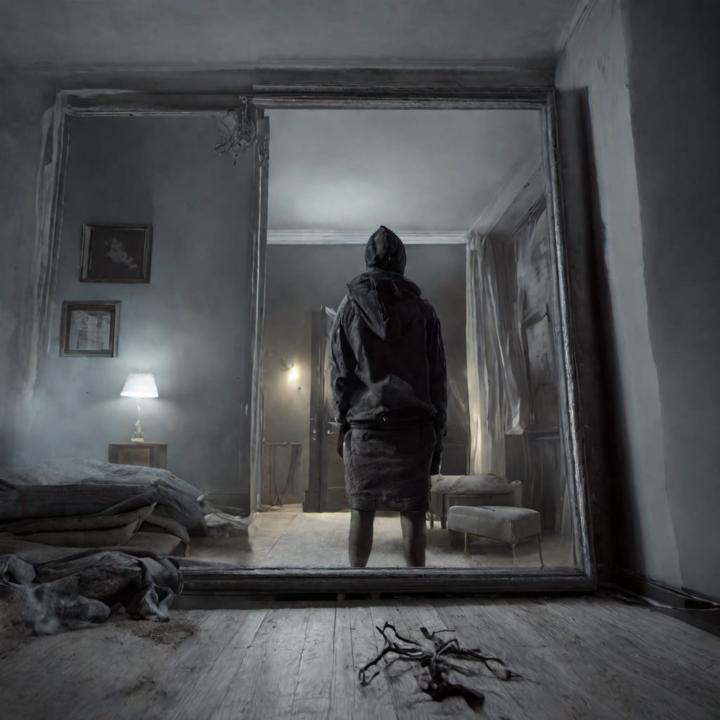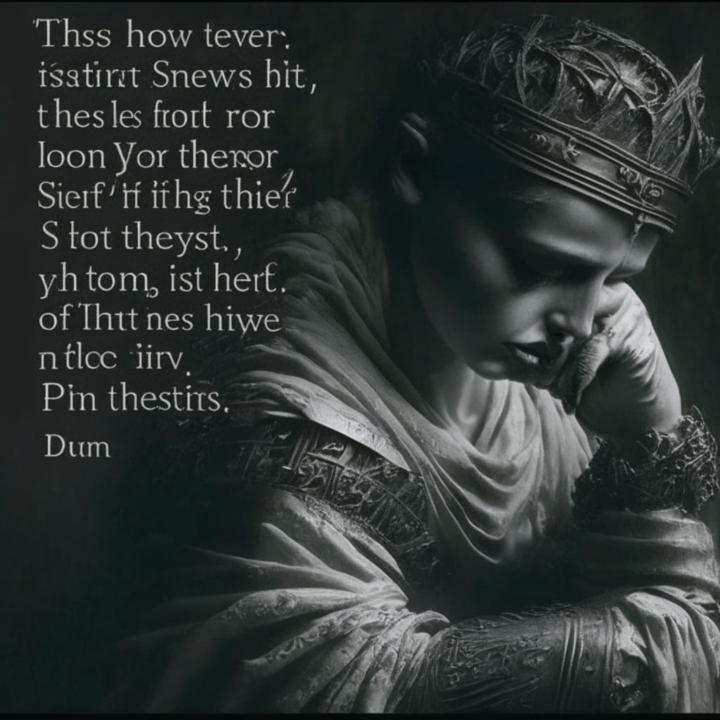Activity
Mon
Wed
Fri
Sun
Feb
Mar
Apr
May
Jun
Jul
Aug
Sep
Oct
Nov
Dec
Jan
What is this?
Less
More
Owned by Terrence
Where scars speak and grit teaches- raw truth, real lessons and smart tools learned on the journey to be who you are and bring purpose with integrity
Discipline. Truth. Performance.
Memberships
the CLASSIFIEDS
1.1k members • Free
AI Automation Society
232.9k members • Free
The Skool Hub
4k members • Free
The AI Advantage
69.2k members • Free
9 contributions to Whispers
The Unfixed Equation
Chapter 3 — The Pit: Fractals of Addiction and Independence Addiction is not an object. Not a bottle. Not a pill. Not a line. Not the iron clank of the gym. Not the silent war of spreadsheets. It is rhythm. A pulse. A loop. Flash memory: Face held to a bar heater until skin bubbled. Biological note: Cortisol spikes → survival engraves itself into the nervous system. Scripture marginalia: “Out of the heart flow the issues of life.” The heart is vessel. The heart is wound. I move because stillness burns. I work because silence echoes. I fuck, I lift, I gamble, I sweat — not because they are the end, but because the alternative is void. The pit waits in the quiet. Observer’s voice (third-person): He catalogues the compulsions like specimens. Each repetition a liturgy. Each excess a prayer. He knows this isn’t morality. It is circuitry. Lao Tzu annotation: “Water does not resist. It flows. Soft overcomes hard.” Yet he does not flow. He hammers. He floods. He drowns. Flash memory: Naked at the dinner table, sisters staring, humiliation served as main course. Biological note: Serotonin collapse → social rejection carved into body’s lexicon. Addiction = teacher. Independence = fortress. Both born of the same parent: terror. I learned young: dependence is danger. Trust is a trap. Vulnerability = punishment. So I built walls. But every wall shrinks. Every locked door suffocates and every window is barred. Scripture marginalia: “It is not good that man should be alone.” The verse mocks me. Alone was safety. Alone was survival. Flash memory: Head flushed in toilet, lungs burning. Discipline on naked skin. Biological note: Amygdala hypersensitivity → stillness = threat. Addiction rewards movement. Brain doesn’t care if it’s salvation or destruction. Independence became my idol. My drug. My disguise. Work. Sport. Sex. Women. The barbell. The bet. The grind. Each altar promised transcendence. Each altar left me hungry. Philosophy note: The fortress is cage. Autonomy becomes exile.
0
0

Phantoms of Malice
These lie in ambush to shed blood; They lie hidden to take the lives of others. Cunning fiends lurk in the shadows, their intentions veiled behind a deceiving facade of silence, biding their time to unleash a crimson symphony. Like patient predators, they lie in ambush, waiting for the opportune moment to siphon the essence of life from unsuspecting souls. With a malevolent elegance, they shroud themselves in obscurity, poised to snatch the breath from those who cross their path. Concealed within the veil of secrecy, they are but phantoms of malice, skillfully concealing their maleficent designs. Masters of stealth and cunning, they lie hidden, as if scripted in the dark poetry of tragedy, destined to fulfill their sinister agenda. Bereft of remorse, they prowl the edges of society, drawn to the fragility of mortality like vultures to carrion. Their insidious nature is a dance of shadows, a macabre waltz of silence and stealth. They are architects of dread, orchestrating a sinister symphony that culminates in the shedding of innocent blood. Only by unmasking these spectral malefactors can the world hope to quell the looming specter of their deadly intentions. ©️T.Broughton
0
0

The Unfixed Equation
Chapter 2 — Excavating the Underground Writing this book is like excavating a city built underground: tunnels I thought I had filled with light, corridors I swore were bricked over, stairways I believed led nowhere. And yet here they are, carved into my mind like a map of survival that never asked for permission. The adult body remembers differently than the child. Not just in bruises or scars, but in synapses wired to repeat, in dopamine circuits that mistake chaos for rhythm. I reach for the bottle and feel an echo of old patterns — the self-soothing learned in cold baths, the ritual of hiding in plain sight, the rehearsal of normalcy under duress. Cortisol spikes, serotonin dips, the same chemistry that once kept me alert now becomes the architect of relapse. Science explains it. Logic explains it. But logic does not stop the tremor in the hands, the itch in the mind, the longing for the relief I know will betray me. Independence becomes both shield and trap. I may walk freely, yet the freedom itself becomes a cage. Isolation, once a tool of survival, mutates into a mirror that reflects only the absence of what was lost. I crave connection — not superficially, but in the raw intimacy of being fully seen — yet every invitation is analyzed, measured, and tested. Vulnerability is a currency too expensive, autonomy too sacred. The paradox is this: the more I seek connection, the more I retreat, because every openness feels like a threat to the carefully calibrated self that survived. Recovery is not linear because the brain does not function in straight lines. The nervous system is a topography of old trauma: peaks of fear, valleys of shame, rivers of longing. Addiction, relapse, overindulgence — they are not failures; they are cartography, a map showing which paths remain unhealed. To climb out of the pit requires walking through it, tracing the contours, naming the shadows, and sometimes lying flat in the dirt just to survive another hour. Philosophy whispers between these moments: Lao Tzu reminds me that water carves mountains not through force but persistence. Scripture reminds me that the heart is a vessel, not a monument. Education reminds me that knowledge without experience is decoration. And life reminds me that survival, in all its ugliness — heartbreak, betrayal, addiction, prostitution, loneliness — is its own teacher. Every misstep, every relapse, every indulgence is a syllable in the sentence of existence, a proof that life does not forgive linearity.
0
0

Labyrinth of Currents
Some step into rooms, claiming the floor, yet they tread only in shadow. Shine glitters where roots twist unseen; walls stand straight, but the pulse bends beneath them Checklists are complete; the river moves regardless. Motion is not mastery. Ripples are not rivers. Echo is not song. Boxes tempt. They fit neatly, they measure, they confine. Yet breath bends where boxes cannot. The soul folds where walls fail to understand. Some clutch the visible, ignore the whispering currents, and wonder why foundations tremble beneath polish. Some take what is offered too soon, and it slips between their fingers like water refusing shape. Ego counts. It measures speed, shine, and surface. Depth keeps its ledger quietly, twisting in corners, in roots, in the gaps the eye cannot reach. Time does not rush. Time does not cheer. Time bends currents without announcing itself. Wisdom waits. It is neither loud nor still. It folds in currents, in hesitations, in the invisible stitching between what is known and what must be learned. Those who skim the surface clutch trophies that crumble, believing they hold gold. They see only the glimmer; they feel only reflection; they forget the weight beneath. Observe: Movement rehearsed versus movement discovered. Hands that hold versus hands that shadow. Certainty versus curiosity. Shine that blinds versus depth that illuminates. What bends what, when the current flows unseen? Control is illusion. Influence bends to understanding, not decree. Knowledge without depth is glass — glittering, fragile, fractured. Depth is water — invisible, inexhaustible, reshaping channels without effort, folding itself into spaces no eye can see. Some victories whisper. Some losses scream, The ledger counts what is seen; the current counts all. The hand that grasps too fast takes what is not ready to be given. The eye that sees only shine misses the roots.
0
0

1-9 of 9
@terrence-broughton-2022
Broken, rebuilt,unbreakable(almost) Turning life's hits into wisdom which cannot be bought. Lets journey a short while and share the knowledge?
Active 39m ago
Joined Aug 15, 2025
INTP
Christchurch
Powered by
